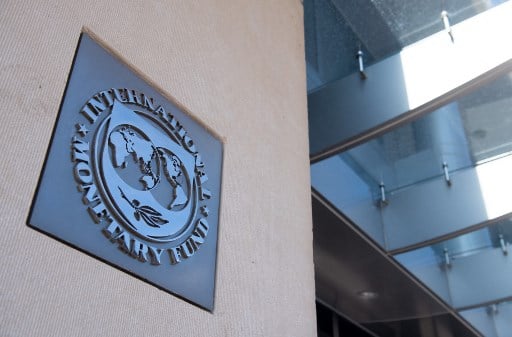
Signage at the International Monetary Fund (IMF) headquarters in Washington, DC. PHOTO | AFP
The International Monetary Fund (IMF) has backed Kenya’s recent taxation of essential goods and services like cooking gas and bank loan fees, arguing additional cash raised have
helped cushion against higher cost of fuel and fertiliser in the wake of the Ukraine war.The Fund says in the latest review of Kenya’s economy that “important tax policy measures” have resulted in “strong” tax collections this financial year ending June.
Some of the taxation measures include 16 percent levy on cooking gas, raising of excise duty on airtime and data to 20 percent from 15 percent, introduction of a 20 percent duty on fees and commissions earned on loans as well as a 7.5 percent tax on winnings from gambling.
“Kenya’s fiscal position has been underpinned by strong tax revenue performance this year, buoyed by a robust economic recovery and the important tax policy measures already undertaken as part of multi-year plan to reduce debt-related vulnerabilities,” IMF Mission Chief to Kenya Mary Goodman said in a statement following the review between March 31 and April 22.
“These resources bring resilience that will allow cushioning part of the impact of the sharp increase in global energy and fertiliser prices on households and businesses while still remaining within the authorities’ fiscal targets for FY2021/22.”
The Treasury has allocated Sh5.7 billion fertiliser subsidy to small-scale farmers for the ongoing main crop planting season after supplies from Russia were cut off because of sanctions, with a further Sh1.5 billion budgeted for the October-December short-rainfall period.
“Spillovers from the war in Ukraine are expected to have a modest impact on growth in the near term, as Kenya’s direct exposure to Russia and Ukraine is relatively limited,” Ms Goodman said.On the other hand, the Treasury had released Sh49.164 billion by April 14 under pump prices stabilisation scheme which started in April last year to reduce the price of the essential commodity whose cost has been exacerbated by Russia’s war on Ukraine.
Central Bank of Kenya governor Patrick Njoroge said the war in Ukraine will not have significant impact on Kenya, citing low value of imports from the warring eastern European countries.
Russia, the CBK chief said, accounted for 1.8 percent (Sh38.64 billion) of Kenya’s nearly Sh2.15 trillion import bill last year — comprising wheat (Sh17 billion), iron & steel (Sh9.67 billion), fertiliser (Sh6.57 billion) and others (Sh5.41 billion).
He added that Ukraine, on the other hand, made up a measly 0.9 percent (Sh19.32 billion) of the country’s imports — composed of wheat (Sh14.3 billion), soybeans (Sh1.93 billion), legumes (Sh966.12 million) and others (Sh1.93 billion).
The IMF has for about a decade now been pushing reforms aimed at taxing all goods, with the vulnerable households to be cushioned through social protection programmes.
cmunda@ke.nationmedia.com




No comments :
Post a Comment